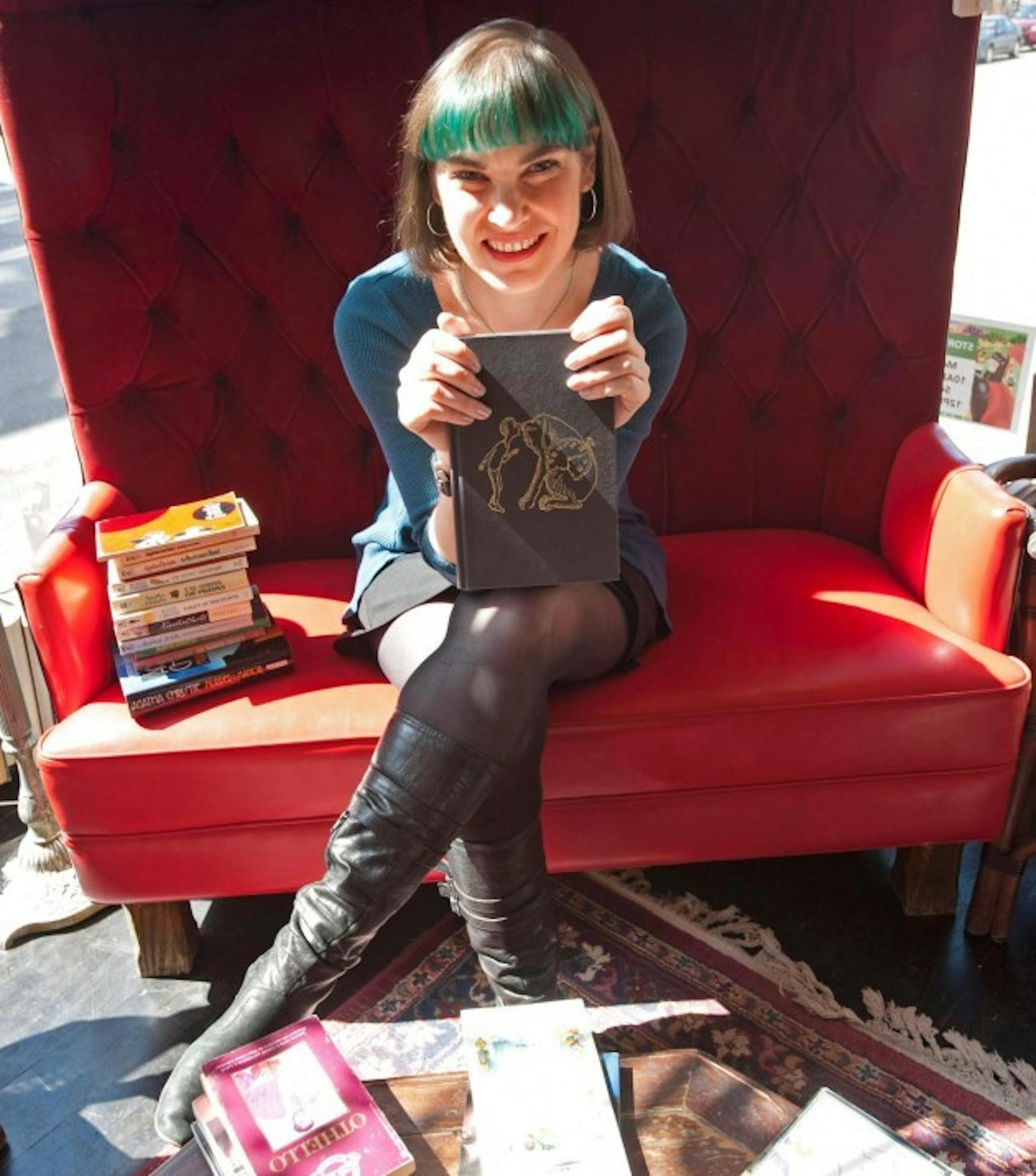Revolutionizing reading
Stacy Ratner i94 fights illiteracy in Chicago with Open Books
The city is filled with individuals who struggle with limited literacy skills and faces some of the worst literacy rates in the nation. A large number of adults have difficulty reading simple food ingredient labels and bus schedules, while children struggle with age-appropriate children's books. Looking to revolutionize reading in her hometown of Chicago, Stacy Ratner '94 started Open Books Ltd.
The Chicago native, who majored in Comparative Literature and decided to attend Brandeis because of its strong humanities program, founded Open Books to improve illiteracy rates in Chicago.
Founded in 2006, Open Books serves as "a nonprofit social venture that operates an extraordinary bookstore, provides community programs, and mobilizes passionate volunteers to promote literacy in Chicago and beyond," according to its website.
The idea for Open Books began when Ratner realized something had to be done about the fact that "over half the adult population in Chicago has limited literacy skill," Ratner said.
"They have trouble with reading labels on cans of food, reading bus schedules [or] getting a job because they have to fill out the application—stuff which is really limiting to their everyday lives and to their prospect of leading the kinds of secure, settled, financially stable lives all of us would like people to be able to live in," Ratner explained.
Besides collecting and selling used books, Ratner and her team of volunteers run a series of literacy programs for thousands of students across the Chicago area.
Programs include Open Books Buddies, which offers one-on-one reading with elementary school students; Adventures In Creative Writing, which consists of writing workshops for fourth through 12th graders; and ReadThenWrite, a six- to eight-week program for teenagers that combines a book discussion club and publishing experience, with the help of the program's volunteers.
"They spend two hours with us, doing some warm-up exercises and then some thinking about writing, and then we do samples, and they write their own story or their own poem, depending on which workshop they're here for," Ratner said.
The program then publishes the students' work, who receive an anthology of the entire class' writing at the end of the session. Open Books also holds a book launch party in the bookstore for the authors and their friends, family and the community, all of whom are also given a copy of the students' work.
"The reason why it's all non-fiction is that we think it's very important that kids have stories to tell about their lives and that that matters," Ratner explained.
"We do a lot of discussion activities around the book that we're reading: Why is it science fiction? What is it that makes it a memoir? What is the author using to make that the case? And then the kids actually write their own significant piece in that genre, so [it is] their own memoir, their own loosely based science fiction," she said.
Ratner credits a course she took at the University as a major influence in her involvement with literature as a career.
"I had actually just taken a course on literature of the Spanish Civil War, and I found it an amazing and compelling course and part of that was that we were allowed to go down to the archives of the library and look through all the materials," she said.
As her passion for literature grew, Ratner became interested in the statistics of the illiteracy of her hometown. Though she did not plan on focusing on the problem while she was in college and even spent time doing graphic design for a catalog in Holliston, Mass. after graduating, "five years ago, ... I said I really want to do something I care about, and so [I started] Open Books," she said.
The program depends on volunteers who help the kids discuss their work and edit pieces to get them ready for publication.
"We have volunteer activities all the time. We're always looking for volunteers. Generally, of course, we always need financial support, every nonprofit does, but something that we always need [is] books. We love book donations," Ratner said.
For now, Ratner plans to keep the nonprofit based in Chicago where the support is most needed.
"It's more important than ever that we continue to offer community space in a used bookstore, especially when so many are having trouble," she explained.
"And we will continue to offer programs that are more and more transformative. We've learned a lot in five years in inventing and piloting and refining the programs that we do," she said.
"But I'm very excited to see in the near and the long-term future what programs we can add that are really more unique than what we do now and more distinctive and more interesting for more kids," she continued.
Ratner believes that the solution to this problem begins with the younger generation, "so that [the problem of illiteracy] is not the statistic five, 10, 15 years from now," she said.
"If you're going to change the world a generation from now, that world is coming up through all the grades right now, and so it's important to be working at as many levels as we can," she said.



Please note All comments are eligible for publication in The Justice.